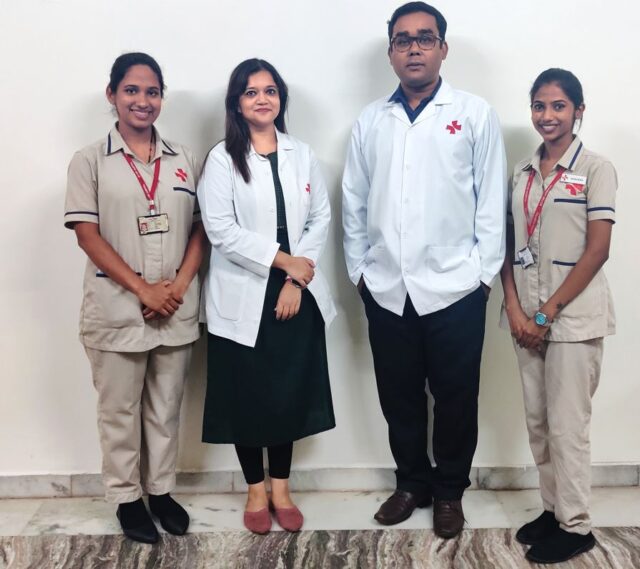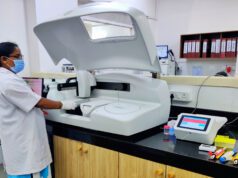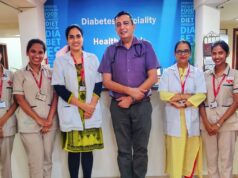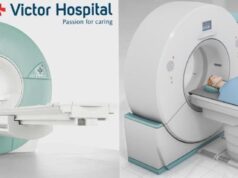The Department of Oral and Maxillofacial Surgery at Victor Hospital is a well-known centre providing a wide range of services for patients including treatment of facial injuries, diseases or abnormalities affecting the face, jaws and mouth, acquired, congenital and traumatic issues related to the jaws and facial region as well as developmental diseases of these areas. The department headed by Dr. Akshata Kotharkar (BDS, MDS Maxillofacial surgery) has the advantage of sharing the best of medical facilities such as OT, Surgical ICU’S, 24-hour casualty, in-patient beds and advanced diagnostic aids like MRI, CT etc.
Dr. Kotharkar stated: “Pain in the jaw or muscles on the side of your face near the ears, possibly accompanied by a popping sound or difficulty in jaw movement, may indicate that the person is suffering from TMD —Temporomandibular Disorders. One such 31-year old male patient who came to the dental OPD of the Victor Hospital had a lot of pain in the jaw on the right side along with severe headache and was not able to sleep and eat well. This patient was treated conservatively with splints which he had to wear in his mouth for around 16-17 hours a day for 2 months and with some medications he was free of the pain and happy”.
TMDs are problems related to the Temporomandibular Joint (TMJ), which is a hinge joint that connects the lower jaw to the bones of the skull in front of the ear on both sides of the head. The TMJ is a complex joint system connected by muscles and ligaments which lets us move our jaw up and down and side to side, which enables talking, chewing, yawning, etc.
TMDs can be either on one or both sides of the face. It mostly affects women more than men, and is more common among the age-group of 20 to 40-year-olds. TMDs often cause varying amounts of pain or discomfort to the patient and jaws get “stuck” or “locked” in the open- or closed-mouth position, or the patient hears clicking, popping, or grating sounds in the jaw joint when the mouth is opened or closed or while chewing which may be accompanied by pain.
To diagnose TMDs, the doctor takes a detailed medical history and conducts a physical exam. One may require full face X-rays to view the jaw, TMJ and the teeth, to rule out other problems. Other tests like MRI to show if the TMJ disc is in the proper position as your jaw moves or CT scan to show the bony details of the joint, may also be conducted.
In some cases pain can be managed by medicines and pain relief exercises but may not be enough in cases with extreme pain. For such cases, non-invasive treatment may be required. “Failure to seek treatment can result in serious complications and permanent damage. Hence, timely treatment and follow ups with your doctor to reduce the risk of potential complications are very essential in case of TMD’s,” says Dr. Kotharkar.
Victor Hospital, Margao is empanelled under the DDSSY health scheme and has treated a large number of patients availing the scheme. The hospital is also empanelled with all major insurance companies for cashless treatment, states a press release.






